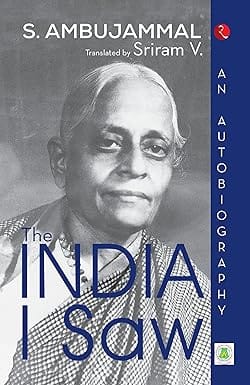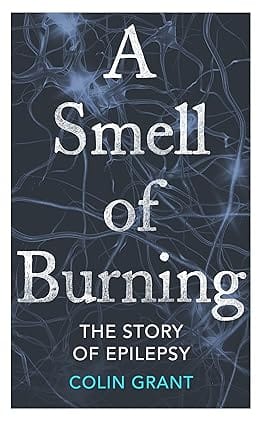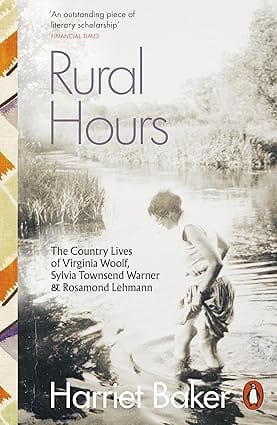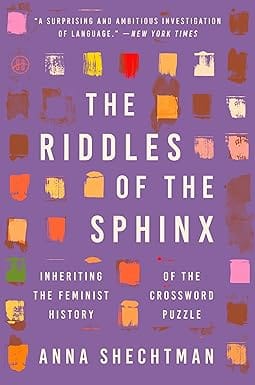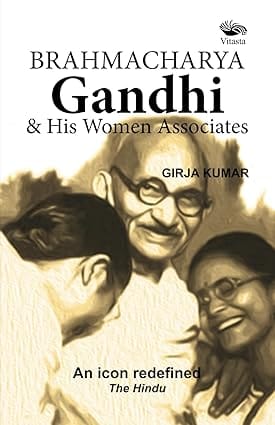WELCOME TO MIDLAND BOOK SHOP!
SHOP FOR
- Contemporary Fiction
- Contemporary Fiction
- Children
- Children
- Comics & Graphic Novels
- Comics & Graphic Novels
- Non-Fiction
- Non-Fiction
- Fiction
- Fiction
Shop No.20, Aurobindo Palace Market, Hauz Khas, Near Church +91 9818282497 | 011 26867121 110016 New Delhi IN
Midland The Book Shop ™
Shop No.20, Aurobindo Palace Market, Hauz Khas, Near Church +91 9818282497 | 011 26867121 New Delhi, IN
+919871604786 https://www.midlandbookshop.com/s/607fe93d7eafcac1f2c73ea4/677cda367903fd013d69b606/without-tag-line-480x480.png" [email protected]9789357029292 6787ab2df535cf003eb8e933 The India I Saw An Autobiography https://www.midlandbookshop.com/s/607fe93d7eafcac1f2c73ea4/6787ab2ef535cf003eb8e93b/810cbymrp0l-_sy385_.jpg 9789357029292
This is a fascinating account of the Indian freedom struggle from subaltern viewpoints.
In August 1973, Ambujammal wrote her autobiography, Naan Kanda Bharatham (The India I Saw), a riveting and insightful account of life as it was in Madras (later Chennai) through almost a century, with the freedom struggle as the background.
Hers was not a happy life, and even as the book traces India’s journey to becoming an independent nation, it also documents the decline of what was once a proud family. Taken overall, it was a life of achievements but with many crosses to bear.
What is remarkable is that Ambujammal chooses not to dwell on the problems and instead focuses on the bigger causes that need support. As one reads the book, it appears as though she asks the reader to judge her on whether her life contributed, even in an infinitesimally small way, to the betterment of the motherland. On that score, it has to be said she triumphs.
The India I Saw is a must-read for anyone who wishes to explore a woman’s life in India during the twentieth century.
In August 1973, Ambujammal wrote her autobiography, Naan Kanda Bharatham (The India I Saw), a riveting and insightful account of life as it was in Madras (later Chennai) through almost a century, with the freedom struggle as the background.
Hers was not a happy life, and even as the book traces India’s journey to becoming an independent nation, it also documents the decline of what was once a proud family. Taken overall, it was a life of achievements but with many crosses to bear.
What is remarkable is that Ambujammal chooses not to dwell on the problems and instead focuses on the bigger causes that need support. As one reads the book, it appears as though she asks the reader to judge her on whether her life contributed, even in an infinitesimally small way, to the betterment of the motherland. On that score, it has to be said she triumphs.
The India I Saw is a must-read for anyone who wishes to explore a woman’s life in India during the twentieth century.
About the Author
S. Ambujammal (1899–1981) was born into great wealth, her father being a top-ranking lawyer of Madras, yet she chose a life typical of many women of colonial India, who at huge personal sacrifice opted to serve the nation. She underwent imprisonment for the cause and later, post India’s Independence, dedicated her life to social service. On the passing of the Mahatma in 1948, she founded the Srinivasa Gandhi Nilayam, named after her biological and spiritual fathers (Sriman Srinivasa Iyengar and M.K. Gandhi)
in stockINR 556
1 1
Email ID already exists!
Your Current password is incorrect
Password Updated Successfully
Thanks for your Feedback
- Home
- Non-Fiction
- Biographies
- The India I Saw An Autobiography
The India I Saw An Autobiography
ISBN: 9789357029292
₹556
₹695 (20% OFF)SIZE GUIDE
Sold By: Hauz Khas - Aurobindo Market
Details
- ISBN: 9789357029292
- Author: S Ambujammal Sriram V
- Publisher: Rupa
- Pages: 256
- Format: Paperback
Book Description
This is a fascinating account of the Indian freedom struggle from subaltern viewpoints.
In August 1973, Ambujammal wrote her autobiography, Naan Kanda Bharatham (The India I Saw), a riveting and insightful account of life as it was in Madras (later Chennai) through almost a century, with the freedom struggle as the background.
Hers was not a happy life, and even as the book traces India’s journey to becoming an independent nation, it also documents the decline of what was once a proud family. Taken overall, it was a life of achievements but with many crosses to bear.
What is remarkable is that Ambujammal chooses not to dwell on the problems and instead focuses on the bigger causes that need support. As one reads the book, it appears as though she asks the reader to judge her on whether her life contributed, even in an infinitesimally small way, to the betterment of the motherland. On that score, it has to be said she triumphs.
The India I Saw is a must-read for anyone who wishes to explore a woman’s life in India during the twentieth century.
In August 1973, Ambujammal wrote her autobiography, Naan Kanda Bharatham (The India I Saw), a riveting and insightful account of life as it was in Madras (later Chennai) through almost a century, with the freedom struggle as the background.
Hers was not a happy life, and even as the book traces India’s journey to becoming an independent nation, it also documents the decline of what was once a proud family. Taken overall, it was a life of achievements but with many crosses to bear.
What is remarkable is that Ambujammal chooses not to dwell on the problems and instead focuses on the bigger causes that need support. As one reads the book, it appears as though she asks the reader to judge her on whether her life contributed, even in an infinitesimally small way, to the betterment of the motherland. On that score, it has to be said she triumphs.
The India I Saw is a must-read for anyone who wishes to explore a woman’s life in India during the twentieth century.
About the Author
S. Ambujammal (1899–1981) was born into great wealth, her father being a top-ranking lawyer of Madras, yet she chose a life typical of many women of colonial India, who at huge personal sacrifice opted to serve the nation. She underwent imprisonment for the cause and later, post India’s Independence, dedicated her life to social service. On the passing of the Mahatma in 1948, she founded the Srinivasa Gandhi Nilayam, named after her biological and spiritual fathers (Sriman Srinivasa Iyengar and M.K. Gandhi)
User reviews
NEWSLETTER
Subscribe to get Email Updates!
Thanks for subscribing.
Your response has been recorded.

India's Iconic & Independent Book Store offering a vast selection of books across a variety of genres Since 1978.
"We Believe In The Power of Books" Our mission is to make books accessible to everyone, and to cultivate a culture of reading and learning. We strive to provide a wide range of books, from classic literature, sci-fi and fantasy, to graphic novels, biographies and self-help books, so that everyone can find something to read.
Whether you’re looking for your next great read, a gift for someone special, or just browsing, Midland is here to make your book-buying experience easy and enjoyable.
We are shipping pan India and across the world.
For Bulk Order / Corporate Gifting
 +91 9818282497 |
+91 9818282497 |  [email protected]
[email protected]
Click To Know More
INFORMATION
QUICK LINKS
ADDRESS
Midland Book Shop - Hauz Khas
Shop No.20, Aurobindo Palace Market, Near Church, New Delhi
Shop No.20, Aurobindo Palace Market, Near Church, New Delhi

